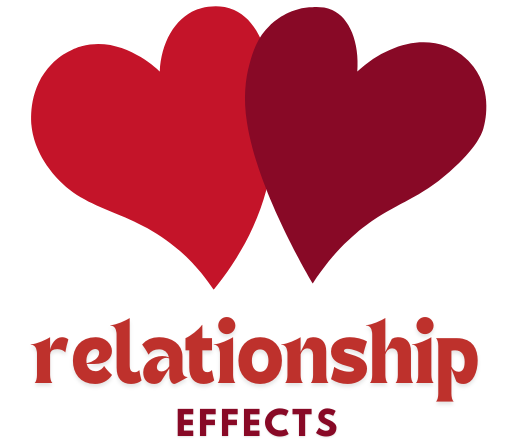Relationships are complex, dynamic entities that require effort, understanding, and mutual respect to thrive. However, even with the best intentions and efforts, not all relationships are meant to last. Recognizing when a relationship is no longer working can be challenging, especially when emotions and shared histories are involved. Understanding the signs of a faltering relationship can help you make informed decisions about your future and well-being.

Communication Breakdown
Communication is the cornerstone of any healthy relationship. When it starts to falter, it often signals deeper issues. In the early stages of a relationship, communication is usually vibrant, engaging, and filled with mutual understanding. As problems arise, this dynamic can shift dramatically.
If you find that conversations with your partner have become strained, filled with misunderstandings, or reduced to mere exchanges of information without emotional depth, it may indicate trouble. Constant arguments over trivial matters or avoiding important discussions altogether can create a toxic environment. This breakdown can lead to feelings of frustration, loneliness, and disconnect.
Another red flag is when one or both partners no longer feel comfortable expressing their true feelings. If you or your partner start to withhold thoughts and emotions out of fear of conflict or apathy, it’s a sign that the foundation of open communication is eroding. Over time, this can create a significant emotional gap, making it difficult to resolve conflicts or reconnect on a deeper level.
Emotional and Physical Disconnection
A key indicator that a relationship may be failing is a growing sense of emotional and physical disconnection. Emotional intimacy involves sharing your inner world with your partner—your hopes, fears, dreams, and vulnerabilities. When this intimacy starts to fade, it can leave you feeling isolated and misunderstood.
If you notice a persistent lack of interest in each other’s lives or feelings, it might suggest that the emotional bond is weakening. This can manifest as indifference to each other’s achievements or struggles, reduced affection, or a lack of shared activities that once brought joy. Over time, this emotional distance can erode the sense of partnership and mutual support that is crucial for a healthy relationship.
Physical intimacy is another important aspect of a relationship. While it’s natural for the intensity of physical connection to ebb and flow over time, a consistent lack of physical affection can signal deeper issues. If physical closeness—whether it’s sex, hugs, or simple gestures like holding hands—becomes rare or feels obligatory, it can reflect a loss of connection and desire.
Unresolved Conflicts and Resentment
Every relationship encounters conflicts, but how these conflicts are handled can determine the relationship’s health. In a functional relationship, disagreements are addressed openly, respectfully, and with a willingness to find a resolution. However, when conflicts remain unresolved, they can fester and lead to deep-seated resentment.
If arguments recur without resolution or if past grievances are constantly brought up, it suggests that underlying issues are not being effectively addressed. This can create a cycle of negativity where both partners feel unheard and misunderstood. Over time, unresolved conflicts can build up, leading to chronic dissatisfaction and a sense of hopelessness about the future of the relationship.
Resentment often grows in the shadow of unspoken frustrations and unmet needs. If you or your partner begin to harbor negative feelings that are not communicated, it can poison the relationship. This can manifest as passive-aggressive behavior, contempt, or a pervasive sense of bitterness. When resentment takes hold, it becomes challenging to rekindle the positive feelings and mutual respect that once characterized the relationship.
The Role of Self-Reflection
Recognizing that a relationship is no longer working often requires honest self-reflection. It’s essential to examine your feelings and behaviors objectively. Ask yourself if the relationship brings more joy than pain, if you feel valued and respected, and if the partnership aligns with your long-term goals and values.
Consider the impact of the relationship on your mental and emotional well-being. Are you growing as an individual, or do you feel stifled and drained? Reflecting on these aspects can provide clarity and help you determine whether the relationship is worth continuing or if it’s time to let go.
It’s also important to consider the possibility of seeking external support. Therapy, whether individual or couples, can provide valuable insights and tools to address issues within the relationship. A professional can help facilitate difficult conversations, uncover underlying patterns, and guide you toward making informed decisions about your future.
Should You Stay in Your Relationship?
Determining if a relationship is no longer working is a deeply personal and often painful process. It involves recognizing the signs of communication breakdown, emotional and physical disconnection, and unresolved conflicts. It also requires honest self-reflection and a willingness to seek support if needed.
Ultimately, the decision to stay or leave a relationship should be based on a careful assessment of your emotional well-being, personal growth, and the overall health of the partnership. While the end of a relationship is never easy, acknowledging that it’s no longer working can be a crucial step towards finding a path to greater happiness and fulfillment, whether together or apart.
Ally is editor at Relationship Effects and a keen writer on the topics of love and relationships. When she's not writing about the highs and lows of being in love, you're likely to find her catching up on the latest season of Bridgerton (again), reading, or hanging with her two ragdoll cats.
